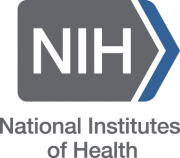Posted on August 28, 2018
Source: NIAID

Nearly Four Decades of Study has Propelled Advances in Heart Disease, Hepatitis, Cancer and Other Diseases
Since the first cases of AIDS were reported in the United States 37 years ago, the National Institutes of Health has invested more than $69 billion in the understanding, treatment and prevention of HIV/AIDS. Beyond the development of life-saving medications and innovative prevention modalities, such research has led to numerous advances outside the HIV field, according to a new commentary from experts at NIH’s National Institute of Allergy and Infectious Diseases (NIAID).
Writing in the Journal of Infectious Diseases, NIAID Director Anthony S. Fauci, M.D., and his colleague Tara A. Schwetz, Ph.D., note that researchers have gleaned critical insights from the devastation HIV can unleash on the immune system. Scientists now better understand the vital role of CD4+ T cells(link is external)—immune cells that HIV selectively infects and destroys—in thwarting other infectious diseases and certain cancers. Studying the course of HIV infection has furthered understanding of persistent immune activation and inflammation that can appear in other diseases. For example, researchers observed that inflammation led to a heightened risk of heart disease in people living with HIV, prompting further inquiry into the role of inflammation in heart disease regardless of a person’s HIV status. HIV research also has provided insight into other HIV-associated comorbidities, including kidney disease, cancer and tuberculosis.